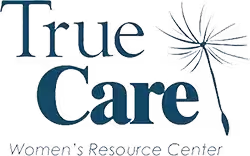The birth of a new baby brings on a variety of emotions from joy to anxiety. However, some women experience post-partum depression after childbirth. While many new moms experience “the baby blues,” a short-term condition that includes sadness, irritability, mood swings, and trouble sleeping, some women have a more severe, long-lasting sadness known as post-partum depression. This condition involves more intense symptoms and lasts much longer; it can also interfere with a woman’s ability to care for her baby and handle daily tasks.
Symptoms
Post-partum depression symptoms can include depressed mood or severe mood swings, excessive crying, difficulty bonding with your baby, and withdrawal from family and friends, among other things. If you experience these things, talk with your doctor – and don’t isolate yourself. You are not alone and this isn’t your fault; don’t think you’re going through this because you’re not strong enough or a failure. Post-partum depression is not a character flaw but instead, a medical issue caused by fluctuating hormones and neuro-transmitters.
Be Open to Help
Help from family and friends is vital during this time. From babysitting and providing food to sharing time together and being encouraging, the support and understanding of important people in a woman’s life can revitalize a new mom who is experiencing post-partum depression.
Although a woman going through this condition doesn’t feel like being around people, it’s one of the most important things she can do. Being social, getting outdoors, surrounding herself with kind, considerate, and consistent people helps her during a time she needs that additional assistance and breaks in life.
If you or someone you know is experiencing post-partum depression, one of the best ways to deal with it is to be with people who care. If you are a friend or family member of a new mom, be that consistent assistant to her.
One Woman’s Journey
Read one woman’s journey and how she dealt with post-partum depression with the help of family and friends:
